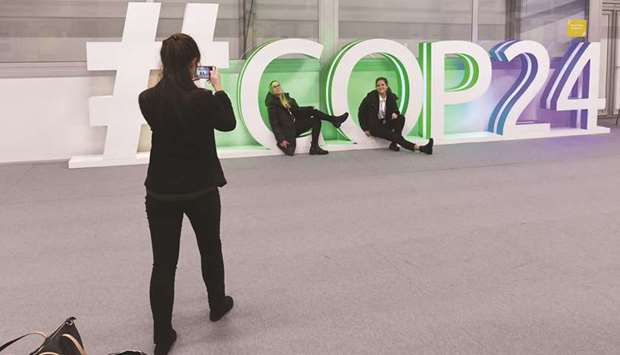Delegates from nearly 200 states, after all-night wrangling, finalised a common rule book designed to deliver the Paris goals of limiting global temperature rises to well below 2° Celsius (3.6° Fahrenheit).
“It has been a long road. We did our best to leave no one behind,” said COP24 president Michal Kurtyka before gavelling through the package of decisions after 13 days of negotiations.
Earlier, the talks became deadlocked over the monitoring of carbon credits to reduce emissions, in negotiations which have already overrun.
Although a text of the package of rules has been published which shows many points have been settled, there was a stand-off over the accounting rules for future carbon permit schemes.
This has repeatedly delayed the closing plenary, when sparks could fly if there are issues still stoking opposition.
A senior negotiator said that Brazil had concerns about some of the rules for governing international carbon credit schemes.
Rich nations often reduce their emissions by paying for carbon-cutting projects in other countries.
However, these programmes are not often transparent and hard to monitor.
One risk is the double counting of emissions reductions, when they are included by both the host country and the purchasing country, which could ruin the integrity of the Paris Agreement.
This is why a solid set of accounting rules is needed.
Brazil has said that it opposes double counting but has issues around aspects of buying of permits from a central registry and the subsequent selling.
“Ministers are still in bilateral talks because of Brazil’s position,” a negotiator said. “Brazil is doing this because they will have a new president soon and they are concerned that after the political change what is agreed here might not be sustained.”
Brazil’s incoming far-right President-elect Jair Bolsonaro takes office on January 1.
There is a compromise option where the issue is deferred until next year.
Countries had been working for two weeks in Katowice, Poland, on a self-imposed deadline to produce a “rulebook” to flesh out details of the 2015 Paris Agreement.
The 156-page rulebook released yesterday afternoon is not as defined and ambitious as some countries and environmental groups want but most of the package is ready to be approved.
Before the talks started, many expected that the deal would not be as robust as is needed as the unity which underpinned the Paris talks has fragmented and one of the world’s biggest emitters, the United States, still intends to leave the pact when it can formally do so in 2020.

